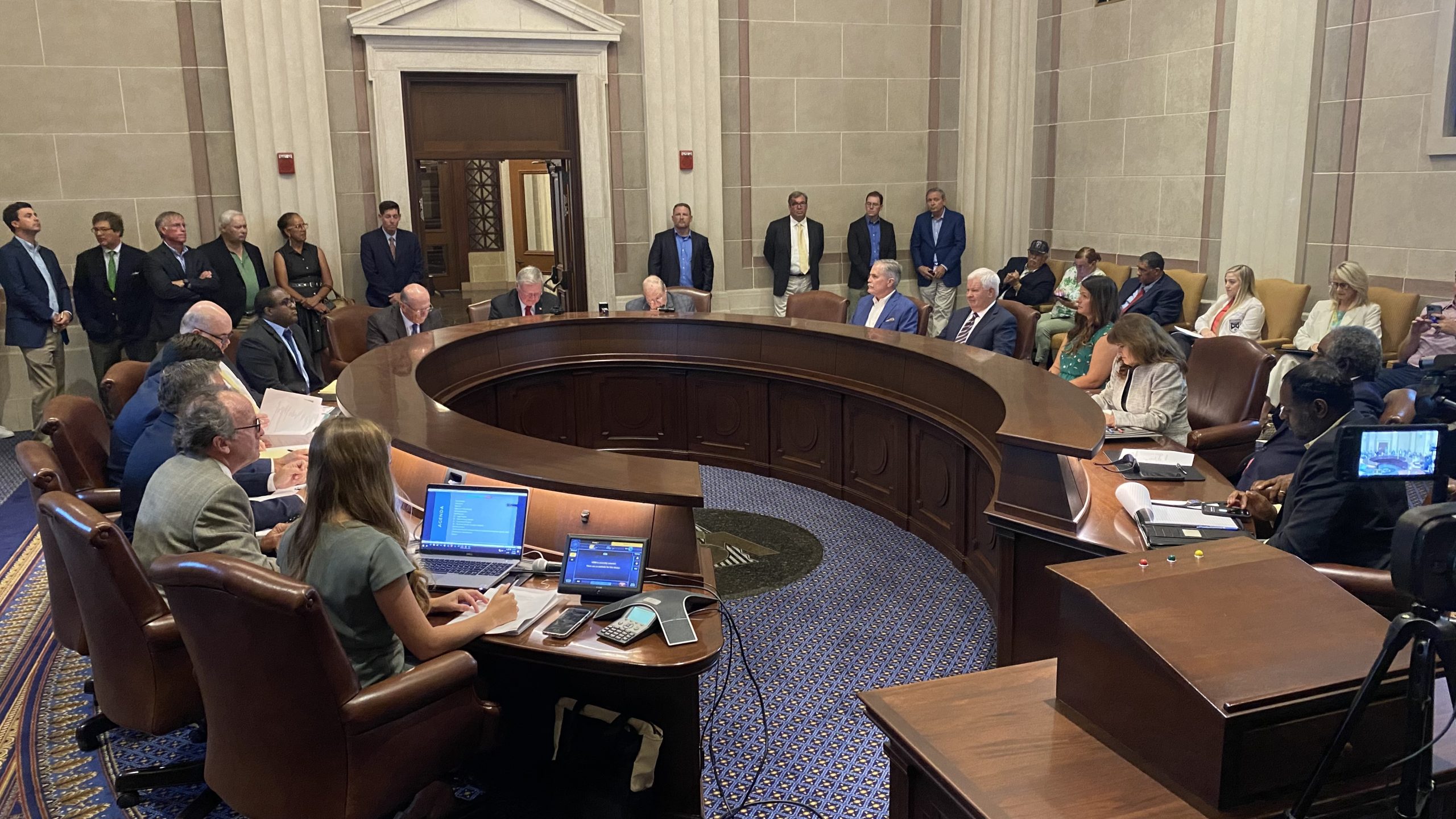|
Getting your Trinity Audio player ready...
|
The Alabama Medical Cannabis Commission at its scheduled Aug. 31 meeting plans to void the licenses it awarded two weeks ago and then re-award those licenses without entering into executive session, the AMCC said in a court filing on Monday.
Such action, AMCC lawyers contend, would satisfy complaints in a lawsuit filed by Alabama Always and Hornet Medicinals that the commissioners violated Alabama’s Open Meetings Act by holding deliberations and a vote in executive session at its Aug. 10 meeting. Several applicants who didn’t receive licenses have filed lawsuits against AMCC seeking to block the awarding of the licenses, since, they contend, the meeting was held illegally.
“Specifically, AMCC requests that the Court continue the preliminary injunction hearing until after August 31, 2023, the date of AMCC’s next scheduled meeting, so that AMCC may address the criticisms unwarrantedly leveled against it by voiding the licenses awarded August 10 and re-awarding licenses without going into executive session,” the filing reads.
It’s unclear if AMCC’s proposed action – to simply re-award the licenses – would satisfy the requirements of the Open Meetings Act, which holds that a public body must hold votes and deliberations in public, except in certain very limited conditions. AMCC held both in private and then simply announced its licensing decisions with little to no public commentary or discussion.
The Montgomery County Circuit Court will likely take up the motion from AMCC at its scheduled hearing on Aug. 28.
For the next week, however, the process of awarding licenses is still paused by the court, after it granted a temporary restraining order against AMCC last week for potentially violating the Open Meetings Act. It’s the second time the process has been halted by the court – the first time resulted in a partial do-over of the grading process after numerous errors were uncovered.
Also on Monday, a number of other motions were filed in the cases, including requests to join the litigation by four other parties, including three more cannabis companies, and a motion for expedited discovery filed by Alabama Always.
The discovery motion, which requested information about the executive session the commission entered on Aug. 10, raised another key point. During the court hearing last week, while defending the AMCC’s decision to go into executive session, attorney William Webster said that if the Commission was required by the court to start the licensing process again, it would “air” the “dirty laundry” of applicants. Alabama Always attorneys argued that means the Commission must have discussed in executive session information about applicants it felt was “dirty,” and that the information, if aired in public, could have an effect on the licensing process.

















































